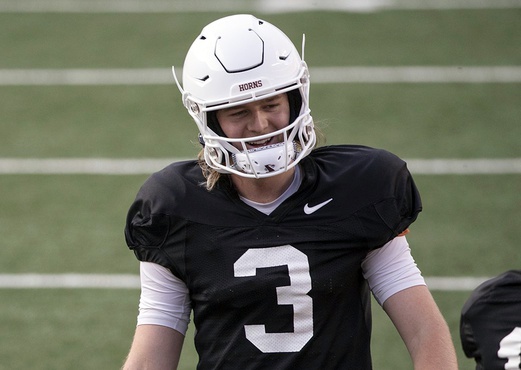On Tuesday, June 4, the Florida High School Athletic Association (FHSAA), which governs interscholastic sports in the state of Florida, approved a measure that will allow high school athletes to profit from their name, image, and likeness (NIL). The state is now the 36th, in addition to the District of Columbia, to pass such a law, and it’s likely the rest will follow suit.

What High School NIL Means for College Football Recruiting
High school players will not be allowed to link their NIL deals to specific achievements or performances, and using their school name, logos, uniforms, or any other intellectual property is prohibited. There are also some other notable restrictions in accordance with other states:
- The compensation is not provided as an incentive to enroll or remain enrolled at a specific school.
- The compensation is not provided by the school or any person acting as an agent for the school.
- No faculty member may be used.
- Athletes must obey the school district’s policy.
Additionally, the FHSAA will not allow NIL deals with certain types of organizations (adult entertainment, alcohol, tobacco and vaping products, cannabis, etc.) and prohibits the creation of college-style NIL collectives by high schools.
“We don’t want to pay kids just because they are great athletes. I think that’s the problem with colleges and NIL. They can’t control the collectives,” said board member Ricky Bell. “We don’t want to see that in high schools.”
However, perhaps the biggest talking point about the new Florida law surrounds the state’s open enrollment policies. Unlike California, Texas, and most other states, a high school athlete in Florida can transfer without penalty, maintaining their eligibility that season. As a result, there’s concern that the new NIL measure will further accelerate the state’s transfer rate.
Of course, high school NIL deals only affect the top 1% of athletes in states that allow them, at least when it comes to significant dollar amounts. There’s less of a chance of elite recruits reclassifying a la Quinn Ewers to cash in, but college money is still more than what they will get in high school.
Some deals could even carry over into college and be used as a recruiting tactic. For example, if a car dealership has a relationship with a school like Miami, they could offer a deal to a high school player in the state and write into their contract that compensation would continue if the player enrolls at the University of Miami.
KEEP READING: Top 10 Uncommitted Players in the 2025 Recruiting Class
While college athletes can use sports agents to market their NIL, high schoolers cannot without endangering their eligibility. As a result, the onus is primarily on the parents to ensure any NIL deal their children sign is legitimate, which can be difficult.
Amateurism is dead, and high-level athletes at all levels are now receiving compensation that those before them were robbed of — a reality that has fundamentally changed the landscape of high school and college sports.
College Football Network has you covered with the latest news and analysis, rankings, transfer portal information, top 10 returning players, the 2024 college football season schedule, and much more!

